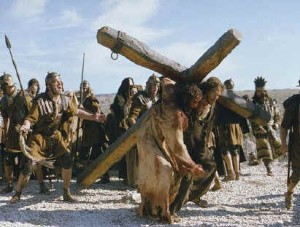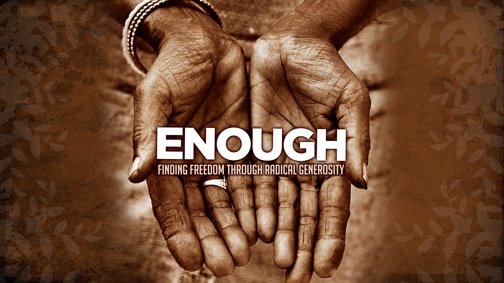Growing up I didn’t know anything about Lent. I only knew Lent as a strange “Catholic” practice. I’ve gained a broader picture of the Body of Christ through the study of Church history and I’ve been able to experience a deeper expression of prayer and worship as a result. I want to help you do the same. Most Protestants think of Ash Wednesday and the Lenten season as a “Catholic thing” while, in reality it was part of the early church’s consistent pattern of worship. Our earliest known reference is that of Ireneus (who died in 202 A.D.). What I’ve sought to do is strip the Lenten season of anything that is not biblical but maintain a simple and clear focus of prayer, repentance, and personal sacrifice. I’ve heard many sermons on Christ’s instructions to pray when He says, “When you pray…” pray like this… But He also says, “When you fast…” fast like this… He didn’t say “if” you fast, but “when”. Jesus expected His followers to pray, and at times, fast as a regular part of our spiritual pattern of worship. Could it be that we (in the U.S. in particular) could learn a few things about giving up so much of what we want and dying to our selfish needs for more? I am certain that prayer and fasting is greatly needed among believers- particularly in the affluent West.
What many have written off as “weird” (ashes on the forehead, giving up certain foods, etc.) I’ve sought to recapture in its purest biblical sense. It is true that Ash Wednesday or “Lent” are not in the Bible (of course, neither are Christmas Eve services, Good Friday services, Advent, and so much of what others of us would call “normal”). You don’t see “Easter Sunday” in the Bible either (because every Sunday is Easter Sunday- or better, Resurrection Sunday for the believer.
“Lent” may not be in the Bible but focused seasons of sacrifice, confession, and repentance clearly are. In the church I grew up in we rushed to Easter Sunday without any preparation of the heart before God. I’ve learned much from the larger Body of Christ as it relates to the spiritual disciplines solitude, prayer, and fasting. “Lent” of comes from the Middle English word “Lenten” which means “Spring”. The Lenten or Easter Season is a focused time of confession and repentance from “Ash Wednesday” to Easter Sunday. Forty Days from Ash Wednesday to Easter Sunday (minus the Sundays leading up to Easter- because the early believers would not fast on Sundays). Later many would go from Ash Wednesday to Maundy Thursday (forty days later). Maundy comes from “mandatum”, meaning “mandate” or “command”. Jesus said, “A new commandment” (mandatum nuevum) I give to you.” So the Lenten season is a period of focused prayer and fasting (with a focus on confession, sacrifice, and repentance). Why forty Days? Forty days shows up throughout the Bible. Moses, Elijah, and Jesus (Luke 4:1-2) all fasted for forty days.
“Remember that you are dust, and to dust you shall return.” Genesis 3:19
The ashes are to remind you of your mortality and of the need to repent of sin in your life. It was common for Jews and early believers to mourn the loss of a loved one with “sackcloth and ashes”. Ashes were also a sign of brokenness and repentance of sin. Confession of sin is a private thing between you and God. It is not something to be paraded around and seen by everyone but a private moment between you and your Savior.
Fasting is the act of the will through which the follower of Jesus puts forth spiritual control over the flesh (through sacrifice- i.e. not eating, or some other form of self-denial) with a view to a more personal and powerful experience with God in prayer. Fasting involves giving up but is much more about receiving. You give up in order to receive. You die in order to live.
Types of fasts:
- Total fast (be careful and receive guidance)
- Water only Prepare your body for it. Hunger pangs will go away- first 2 days hardest.
- Liquid only Juices- not milkshakes! (When you don’t eat, more time for prayer)
- Eliminate certain foods No deserts, no caffeine, no junk food- “Daniel fast”- healthy
- Media fast NO television, NO movies, NO paper, NO internet, NO video games, etc.
- Multiple possibilities Be creative and specific-but a sacrifice- must cost you something.
During a fast, when your earthly desires kick in, you turn to the Lord and you are reminded that He is more than enough to meet your every need. It is a wonderful way to be drawn to the Lord and to overcome the desires of the flesh in many areas of your life.
“If I had cherished sin in my heart, the Lord would not have listened; but God has surely listened and heard my voice in prayer.” Psalm 66:18-19 What is David saying here? I cannot harbor unconfessed sin or unresolved sin in my life. Any Christian who desires to fully serve God and follow Him must attack sin from all fronts. We cannot hold on to sin but release it and the first step is to confess it- to God first and then, to others.
“For me, to live is Christ and die is gain.” Philippians 1:21
To be alive to Christ and to live for Him means I must die to myself, my needs, my wants- continually. “In the body” is where dying of Jesus is seen through my life and revealed to others. It is, at the same time, the place where this life (the resurrection life) of Jesus is seen. In the same passage he says, “so that the life of Jesus may also be revealed in my body.” My life then becomes a presentation of a Story- the Story of the passion of Christ. I die to myself in order to reveal His life in my. You see, you are called not only to tell the story of the Passion, but to LIVE it, experience it. How? By dying to self.
But the language used by Paul is a continual dying- the process of dying- you are continually dying. To remind you of your mortality- your body is dying and to get you focused and busy on the eternal that does not die. You see, death for Jesus was not the end- He lives. So, how can we position ourselves to move to this dying of self? How can I be touched by God to go to deeper levels? By confessing my sin to Him, by showing Him that He is all I want- all I need. Fasting is that spiritual discipline that helps us live that out in unique ways. It’s why Jesus says, “When you fast…” (Matthew 6:16)- it was an expected practice of the believer. It’s a way to deny yourself of earthly things in order to focus on heavenly things.
“My food” Jesus said, “is to do the will of Him who sent me and to finish His work.” John 4:34 During a fast He is your food. The will of God becomes your sustenance.
May you walk to the cross with the Lord Jesus this Easter season as never before.
“Create in me a clean heart, O God, and renew a right spirit within me.” (Psalm 51:10)



